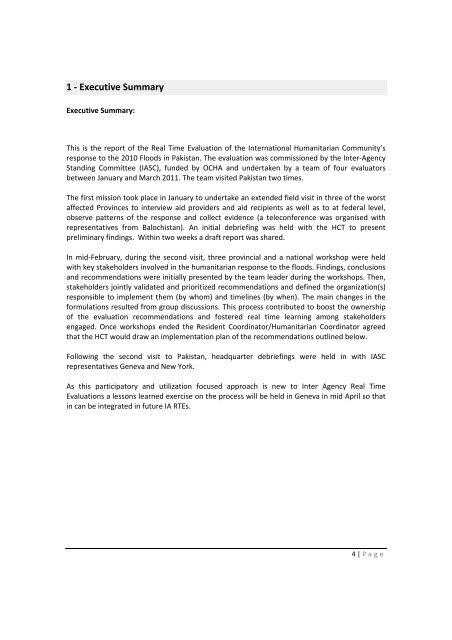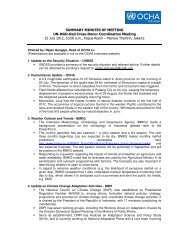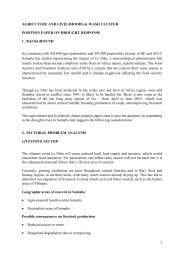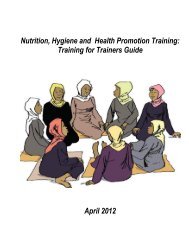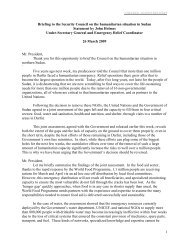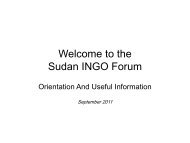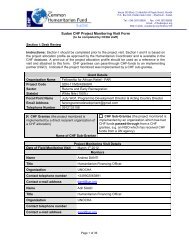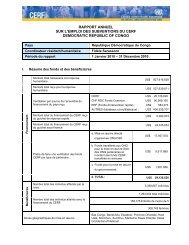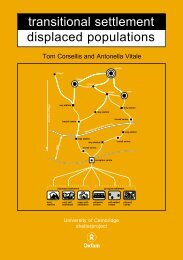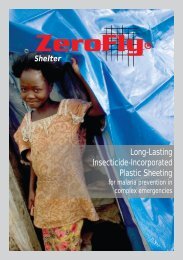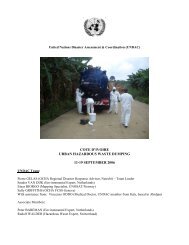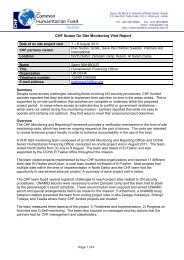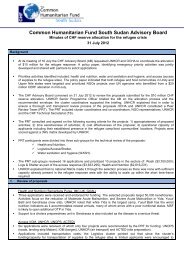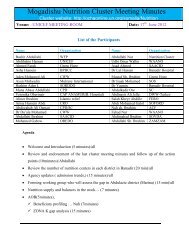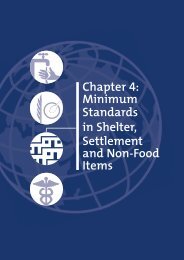Inter-Agency Real Time Evaluation of the Humanitarian ... - OCHANet
Inter-Agency Real Time Evaluation of the Humanitarian ... - OCHANet
Inter-Agency Real Time Evaluation of the Humanitarian ... - OCHANet
Create successful ePaper yourself
Turn your PDF publications into a flip-book with our unique Google optimized e-Paper software.
1 ‐ Executive Summary<br />
Executive Summary:<br />
This is <strong>the</strong> report <strong>of</strong> <strong>the</strong> <strong>Real</strong> <strong>Time</strong> <strong>Evaluation</strong> <strong>of</strong> <strong>the</strong> <strong>Inter</strong>national <strong>Humanitarian</strong> Community’s<br />
response to <strong>the</strong> 2010 Floods in Pakistan. The evaluation was commissioned by <strong>the</strong> <strong>Inter</strong>‐<strong>Agency</strong><br />
Standing Committee (IASC), funded by OCHA and undertaken by a team <strong>of</strong> four evaluators<br />
between January and March 2011. The team visited Pakistan two times.<br />
The first mission took place in January to undertake an extended field visit in three <strong>of</strong> <strong>the</strong> worst<br />
affected Provinces to interview aid providers and aid recipients as well as to at federal level,<br />
observe patterns <strong>of</strong> <strong>the</strong> response and collect evidence (a teleconference was organised with<br />
representatives from Balochistan). An initial debriefing was held with <strong>the</strong> HCT to present<br />
preliminary findings. Within two weeks a draft report was shared.<br />
In mid‐February, during <strong>the</strong> second visit, three provincial and a national workshop were held<br />
with key stakeholders involved in <strong>the</strong> humanitarian response to <strong>the</strong> floods. Findings, conclusions<br />
and recommendations were initially presented by <strong>the</strong> team leader during <strong>the</strong> workshops. Then,<br />
stakeholders jointly validated and prioritized recommendations and defined <strong>the</strong> organization(s)<br />
responsible to implement <strong>the</strong>m (by whom) and timelines (by when). The main changes in <strong>the</strong><br />
formulations resulted from group discussions. This process contributed to boost <strong>the</strong> ownership<br />
<strong>of</strong> <strong>the</strong> evaluation recommendations and fostered real time learning among stakeholders<br />
engaged. Once workshops ended <strong>the</strong> Resident Coordinator/<strong>Humanitarian</strong> Coordinator agreed<br />
that <strong>the</strong> HCT would draw an implementation plan <strong>of</strong> <strong>the</strong> recommendations outlined below.<br />
Following <strong>the</strong> second visit to Pakistan, headquarter debriefings were held in with IASC<br />
representatives Geneva and New York.<br />
As this participatory and utilization focused approach is new to <strong>Inter</strong> <strong>Agency</strong> <strong>Real</strong> <strong>Time</strong><br />
<strong>Evaluation</strong>s a lessons learned exercise on <strong>the</strong> process will be held in Geneva in mid April so that<br />
in can be integrated in future IA RTEs.<br />
4 | P age


